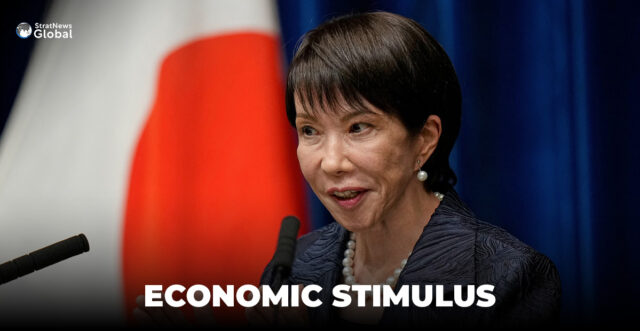Japan’s new Prime Minister Sanae Takaichi is working on a fresh economic stimulus package, which is expected to be larger than last year’s $92 billion plan, according to government sources. The new package aims to support households struggling with rising prices and inflation, and is likely to be announced in the coming weeks.
The package of more than 13.9 trillion yen marks Takaichi’s first major economic initiative since the advocate of big fiscal spending took office on Tuesday, reflecting her commitment to what she calls “responsible proactive fiscal policy”.
It will be built around three main pillars: measures to counter inflation, investment in growth industries, and national security, the sources said, declining to be identified because the matter is still private.
Japan’s Nikkei share gauge erased losses and turned higher on Wednesday afternoon following the Reuters report, while the yen pared morning gains and was little changed.
Inflation Relief Measures
As part of its core inflation relief measures, the Takaichi administration plans to swiftly abolish the provisional gasoline tax rate.
It also aims to expand local government grants, with a focus on supporting small and medium-sized companies that are unable to benefit from existing tax incentives for wage hikes.
The package will also include investments in growth sectors such as artificial intelligence and semiconductors as the government focuses on strategic economic development.
The exact scale of the package is still being finalised, the sources said. It could be announced as early as next month.
Supplementary Budget
To fund the measures, the government is moving ahead with drafting a supplementary budget for the current financial year through March, with an eye toward passing it during the upcoming extraordinary parliament session.
If additional spending exceeds initial expectations, the government may need to issue deficit-covering bonds, raising questions about how to balance economic growth with fiscal discipline.
(With inputs from Reuters)





